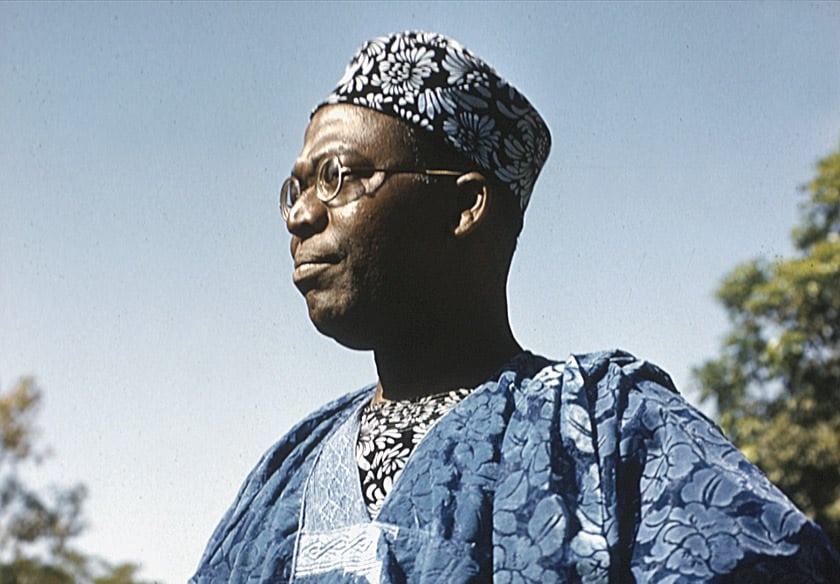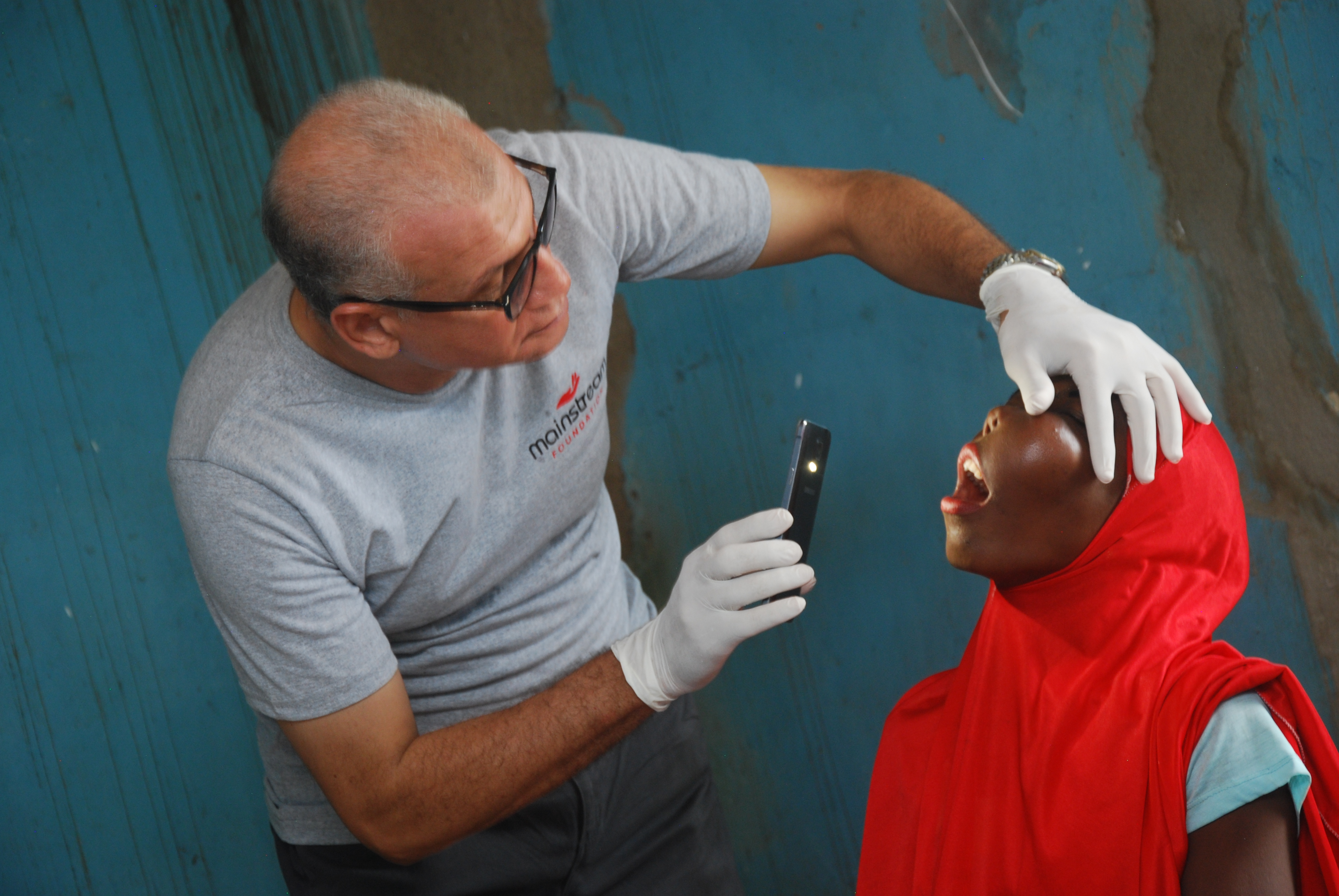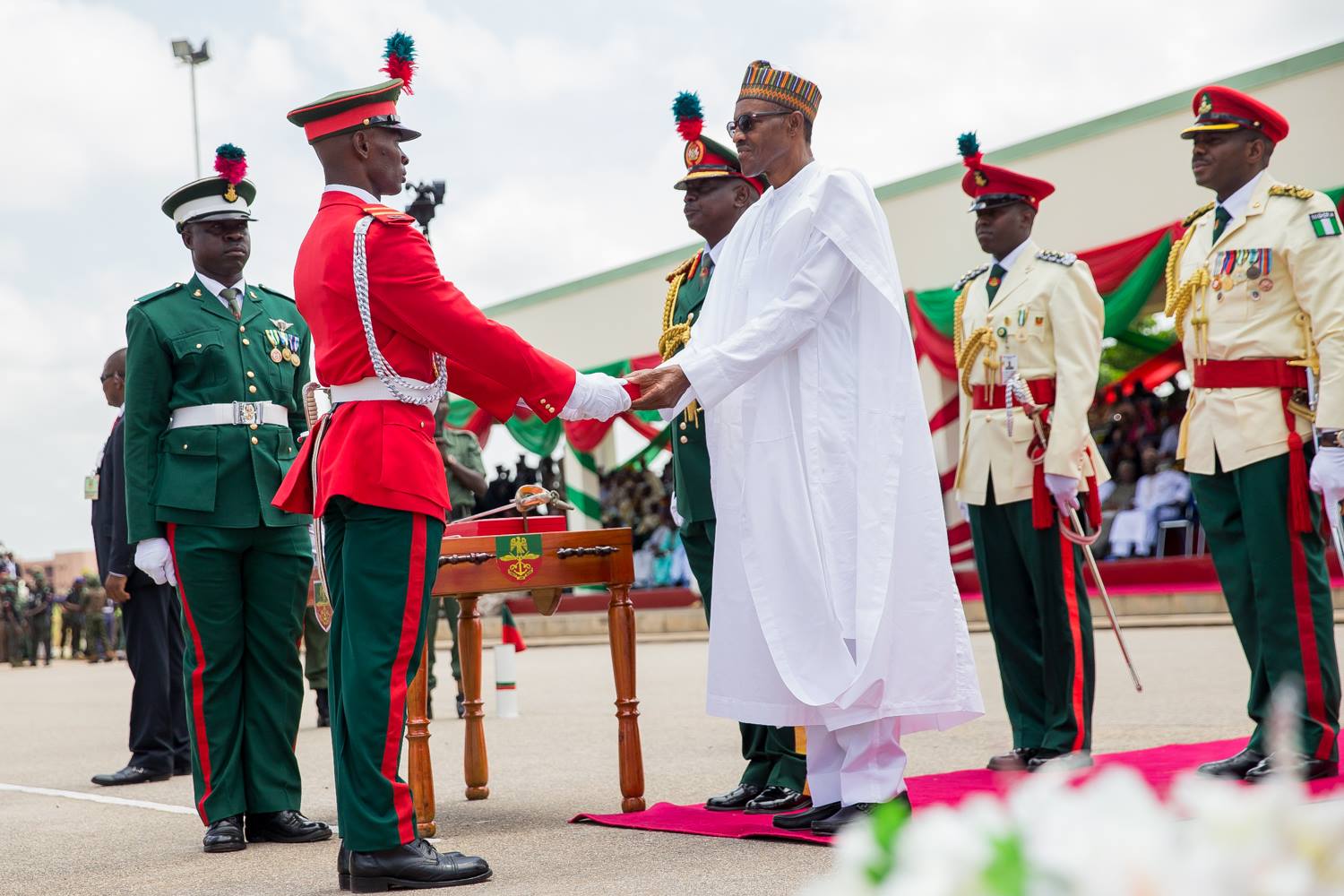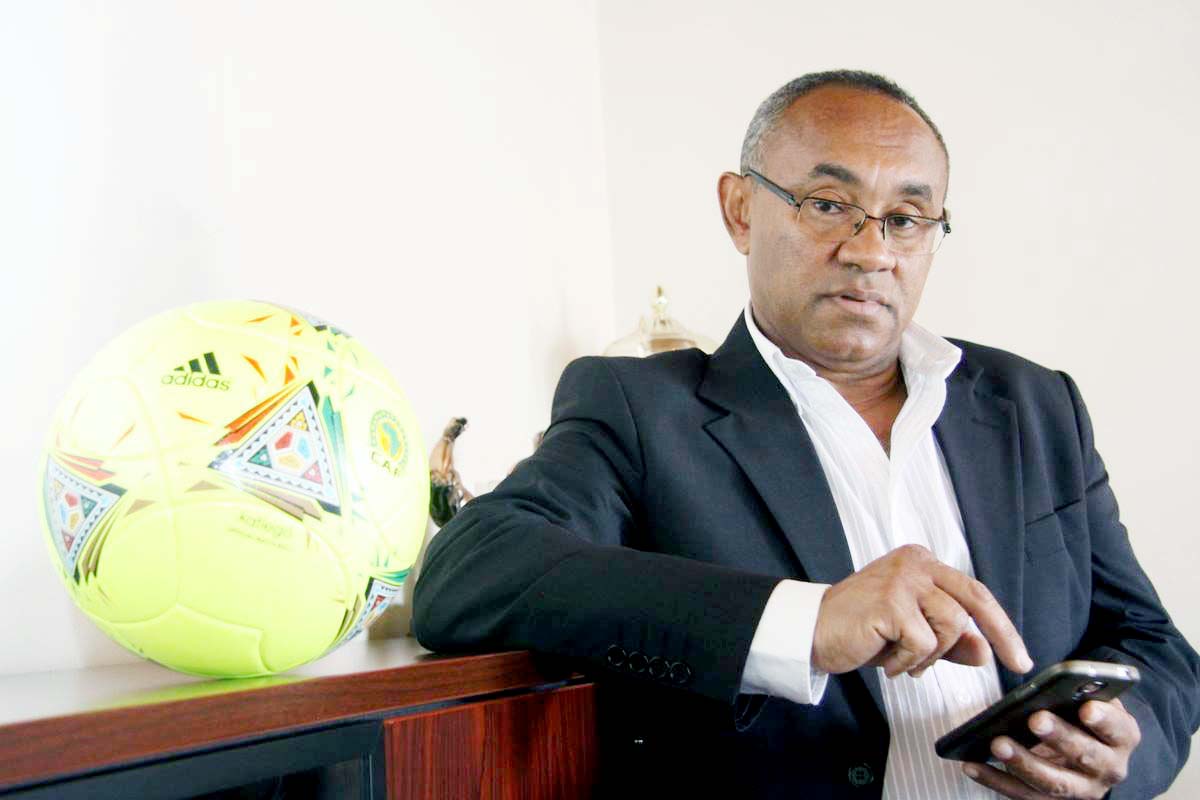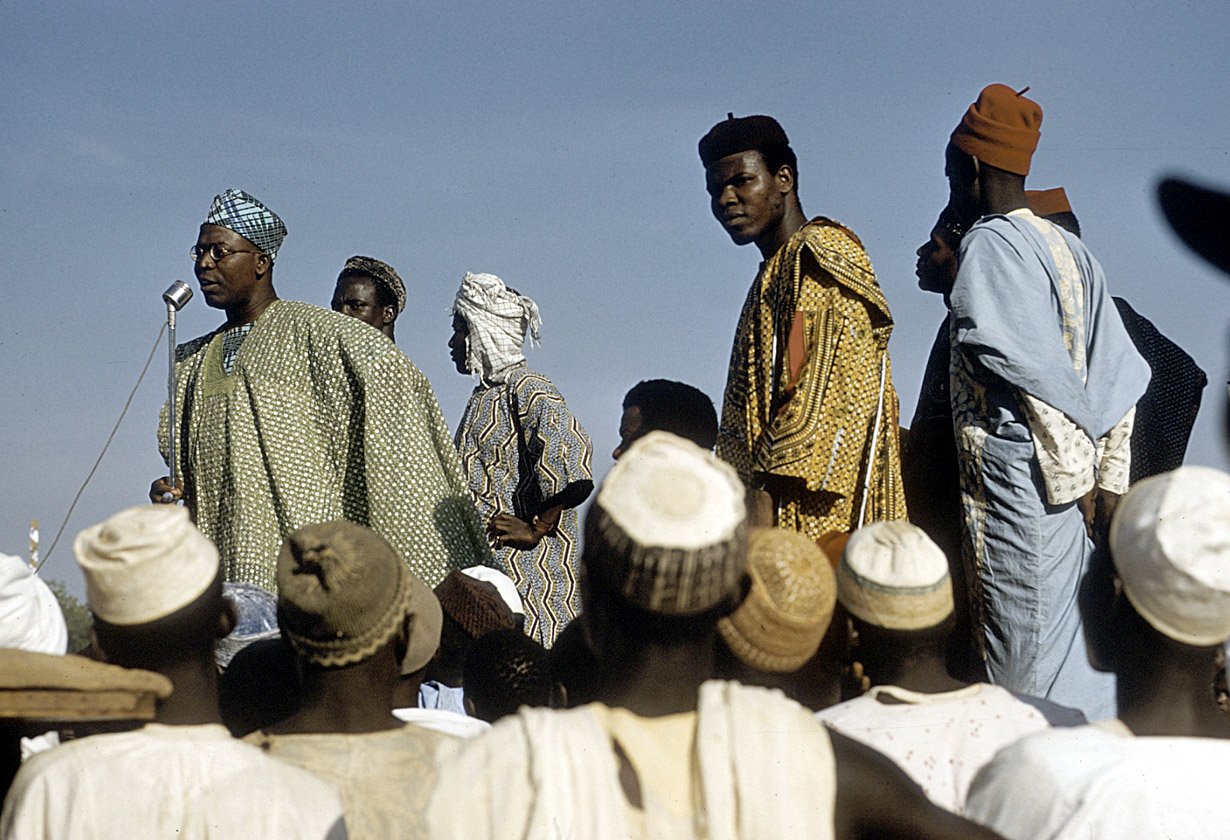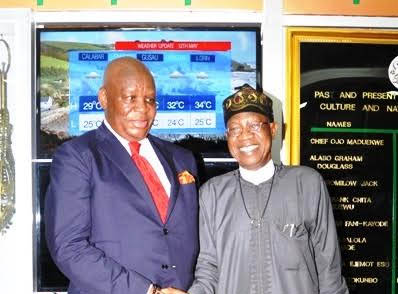The select crowd that gathered at the Obafemi Awolowo’s Efunyela Hall in Ikenne, Ogun State on that Thursday, May 4 , 2017, was obviously bifurcated into two: one, a set of people (about five in all) who had met, associated with and had the opportunity of accessing the man Awolowo; the other, a number of youths who never met, never related with, nor directly felt him. It was five days before the anniversary of the thirty years he breathed his last.
For the former, the man was just an assemblage of flesh and blood like every other mortal who was capable of every existential component of mankind. To the latter, however, Awolowo was one huge mythical cast in Nigeria’s historical flick. They had heard so many angelic stories about his politics, his cultural views, his administration of the Western Region, his religious views and believe that he was a god whose ideals were beyond earthly aspirations. Very many of them had not been born by the time he took his bow in May 1987 and those who were not old enough to interrogate issues surrounding him.
The posthumous literature on him has also not helped matters for an appropriate recreation of his kind in the last thirty years. Academic and even political usage of his name by politicians of the South West, as well as the celebration of his persona and strides have largely godified him, removing him from the realm of humans and making his feats perceptively outside the locus of being replicated. While Professor Akin Mabogunje said Awolowo was the leader Max Weber referred to in his classification of charismatic leadership, Adebayo Williams said he was “a constellation of emeriti,” J.D.Y. Peel sees him as the personification of an exemplar, Professor Wale Adebanwi of the University of California, Davis, said he was a central signifier of Yorubaness and came to an “ascension to the cultural status of the modern progenitor” Oduduwa, while this writer, in a doctoral project, also referred to him as offering that intellectual leadership which Antonio Gramsci said belongs to “experts in legitimation and delegitimation.”
So in the Efunyela hall that morning, the task of the first category of persons – Awolowo’s close associate, Ayo Adebanjo; his Private Secretary, Odia Ofeimun; a member of his inner cabinet, Professor Banji Akintoye, Professor Akinkugbe, and of course, his daughter, Tokunbo Awolowo-Dosumu – at that gathering tagged Conversations – was to snatch him from the realm of the celestial, where academic portrayals carefully hid him, (aware of its limitations in cloning another Awolowo for our generation) and return him to the accessible pinnacle of an arms length, neighbor-next-door who was not different from every other person. It occurred to them that unless and until they demythify Awolowo, aspiring to his ideals would be a mirage. The task of the group appeared very daunting.
This is because the literature on Awolowo is a surfeit of ecclesiastical narratives about a man who was everything but human. His politics, his vision, his being invested with the modern cultural features of the Yoruba mythological progenitor, Oduduwa, his superior administrative and organizational proficiency, his humanism, how he succeeded in bringing the divided Yoruba under a common umbrella, how he organized the Yoruba nation under the Egbe Omo Oduduwa umbrella, etc. are stuffs that scented with angelic touch.
Advertisement
It occurred to the first set of people that the inability, in the last 30 years to have the youth aspiring to be like Awolowo was due in part to the mythification of the sage and belief that except one is imbued with spiritual/metaphysical endowments from heaven, no earthly being could clone the strides of the Ikenne political icon.
Akintoye began the process of the de-radicalization of the minds of the youth gathered. He gave an anecdotal narrative of how he had brought his then tthree-year-old daughter, who coincidentally was also in the crowd, to one of Awolowo’s birthday anniversary celebrations in Ikenne and how the girl, who was born on March 3, had walked up to the sage to ask him if he knew that she was older than him by three days, since Awolowo was born on March 6! Awolowo, he said, had given an infectious, toothy laughter at the girl’s fascinating logic. Awolowo was even said to enjoy his Ijebu delicacy of ikokore while alive, enjoyed good laugh at jokes and indeed cracked one himself.
Then entered the bard, Ofeimun, who told the crowd that each time he travelled abroad with his principal, he would expend his own money on purchasing books and would loan more from Awolowo who, immediately they got home, would demand a prompt refund. He would then joke that Awolowo’s Ijebu ancestry was responsible for such penny-pinching and Awolowo would remind him that he was indeed an Ijebu and didn’t joke with his money.
On the 30th anniversary of Awolowo’s demise, it is getting obvious that the hiatus that separates him and upcoming Nigerian youth who should be persuaded by his iconic and remarkable life to seek to take up the gauntlet to liberate their people like Awo did to the Western Region and Nigeria as a whole, was getting wider by the day. And this is not a fitting memory to an Awolowo who sought to recreate himself in the lives of his teeming faithful.
Advertisement
The early 1940s Western Region was a rudderless, lacking-focus region. The deep analysis of the place of his people, as reflected in his Path to Nigerian Freedom, a book he wrote while just 38 years old, showed that he had taken his time to conduct an intellectual study of their past and having done this, sought a redefinition of their place in the larger scheme of things. In the book, Awolowo painted a very grim and unflattering picture of the Yoruba people. They were a “badly united”, fissiparous and fractious people who engaged one another in needless fratricidal inter-tribal wars, with the younger elements struck by the blow of inferiority complex about their place in the nations that made up Nigeria. They had very low esteem of themselves and engaged in “mutual recrimination and condemnation.”
Having taken a critical look at the unenviable past of the Yoruba in relation to themselves and the future that he projected for them, according to their potentials, Awolowo set a systematic goal for his race and his role in that cultural revival whose ultimate goal was to be achieved through a political ascendancy. In spite of his personal business and political misfortunes, he sought to solder his people into a single nationality, beginning with a unified belief in a single ancestor called Oduduwa.Historians, anthropologists and virtually all who have communicated the Awolowo persona in the last 30 years have not done the recreative desire of Awolowo for his people, the Yoruba people themselves and even Nigeria that is faced with a dearth of conscientious and humanist leadership, any good. Apparently unable to fathom how a single individual came to represent the totality of his people’s aspirations and identity, this set of people celestialize Awolowo, so much that he has become a metaphysical ideal that those who aspire to his worldviews feel is not attainable. In their frustration, they are content to accept
Historians, anthropologists and virtually all who have communicated the Awolowo persona in the last 30 years have not done the recreative desire of Awolowo for his people, the Yoruba people themselves and even Nigeria that is faced with a dearth of conscientious and humanist leadership, any good. Apparently unable to fathom how a single individual came to represent the totality of his people’s aspirations and identity, this set of people celestialize Awolowo, so much that he has become a metaphysical ideal that those who aspire to his worldviews feel is not attainable. In their frustration, they are content to accept ideals that are far from what he stood for. This, to the mind of this writer, is the dilemma that needed to be overcome.Rather than see Awolowo in this mould, what he was while growing up, which is the prop that catapulted him to all the creative edge achievements he made in governance and
Rather than see Awolowo in this mould, what he was while growing up, which is the prop that catapulted him to all the creative edge achievements he made in governance and organization of men and groups, must be canvassed to the youth of today. He had a visceral anger against the status-quo and demonstrated the valor to pursue a process of change of the uninspiring polity. It was not as if there were no groups in Yorubaland when the young Awo was growing up in the 1940s but there were no concerted efforts to bring them together. Great Yoruba like Akinola Maja, Doherty, Adeyemo Alakija, had existed. There were groups like Ijebu Descendants Union, Ibadan Descendants Union etc but they were united only along intra-national lines. It took the creative zeal in Awolowo to solidify these divisive tendencies.
Advertisement
So much fuss has been made over the emergence of the new French President, Emmanuel Macron, a 39-year old and the need for Nigerian youths to recreate this model in their country. Great as the idea is, no significant milestone would be recorded unless the youth are angered by the dross in the land and are perspective enough to understand the multi-layered dynamics of the rot that needs salvage. Right now, the country is at its lowest ebb, just like the Yoruba nation, according to Awolowo, was in the 1940s. The land was crying for salvation, just as the nations that make up Nigeria are at the moment. Can the nations be lucky enough to have youths from all the nooks and crannies of the country who are also fed up, like Awolowo was, like Mother Pollard, in Montgomery, Alabama of 1955 was, who, in her anger at the racist status-quo, said that her feet were tired? The history of rights activism in the United States of America cannot be fully told until the mention of Mother Pollard, a community elder and adviser to Martin Luther King Jr. Pollard was said to have given wise and resounding counsels at the famous Montgomery Bus boycott. She was one of the members of the African-American community in Montgomery at the beginning of the historic 1950s bus boycotts. Declining to take the bus in spite of her advanced age and choosing instead to walk to prove a point to the white racists of America, Mother Pollard had uttered the famous statement, “My feet are tired, but my soul is rested.” The inspiration for the boycott had come after the famous refusal of Rosa Parks not to give up her seat to white passengers on a bus at the insolent request of an Alabama bus driver. Park was subsequently arrested for her racial effrontery. The boycott came on the day of Parks’ trial on December 5, 1955. It lasted
The history of rights activism in the United States of America cannot be fully told until the mention of Mother Pollard, a community elder and adviser to Martin Luther King Jr. Pollard was said to have given wise and resounding counsels at the famous Montgomery Bus boycott. She was one of the members of the African-American community in Montgomery at the beginning of the historic 1950s bus boycotts. Declining to take the bus in spite of her advanced age and choosing instead to walk to prove a point to the white racists of America, Mother Pollard had uttered the famous statement, “My feet are tired, but my soul is rested.” The inspiration for the boycott had come after the famous refusal of Rosa Parks not to give up her seat to white passengers on a bus at the insolent request of an Alabama bus driver. Park was subsequently arrested for her racial effrontery. The boycott came on the day of Parks’ trial on December 5, 1955. It lasted till December 20, 1956.
A combination of Awolowo’s anger and Pollard’s stubborn resolve is the only seed that can germinate a radical overturn of the present decadent status-quo in Nigeria. Virtually everyone in Nigeria has been sullied by the systemic rot, creating a mass mess that we can all seldom claim immunity from. This brings us to the juncture of the fundamental query, should the one who would liberate this land possess the almost ecumenical moral persuasion that was said to be Awolowo’s forte? In other words, should the Nigerian nations’ messiah be as morally upright as Awolowo or should we waive the moral suasion of the expected leader? This is definitely another conversation on its own on which a consensus of opinion would give the concept a life or a lie.
In all this, it must be stated that Awolowo, like every other human being, was very fallible. He had his own foibles as a leader which any aspiring Macron must try to rise above. For instance, if both he and Samuel Ladoke Akintola – the latter whom Awolowo himself acknowledged his unusual élan and leadership qualities – had properly managed their intra-group schisms, the western region, which today approximates about nine states, would have been more sophisticated and ostensibly more developed than this. An acknowledgement of his limitations must be where to begin in the quest to humanize this great leader.At the Ikenne Conversations, Chief Adebanjo told the story of one of Awolowo’s ministers while he was Premier who took his wife along on an official assignment for the region abroad. On being told, the Premier had asked that every expense incurred by the minister in favour of his wife be deducted from his salary. Professor Akintoye also recounted Awolowo’s disappointment and upbraid of him when he met him at his Lagos Parklane house where the leader sought to know if he, Akintoye as Senator was there when the parliament unilaterally increased the legislators’ salaries by N3000. “You were not elected to the Senate for personal comfort!” he said Awolowo had thundered.
Advertisement
At the Ikenne Conversations, Chief Adebanjo told the story of one of Awolowo’s ministers while he was Premier who took his wife along on an official assignment for the region abroad. On being told, the Premier had asked that every expense incurred by the minister in favour of his wife be deducted from his salary. Professor Akintoye also recounted Awolowo’s disappointment and upbraid of him when he met him at his Lagos Parklane house where the leader sought to know if he, Akintoye as Senator was there when the parliament unilaterally increased the legislators’ salaries by N3000. “You were not elected to the Senate for personal comfort!” he said Awolowo had thundered.
If we are desirous of another Macron in Nigeria, one who would recreate the Awolowo footprints, we must begin to demythify Awolowo and canvass that he is an achievable postulate and paradigm.
Dr. Adedayo, [email protected], writes in from Ibadan, Oyo State.
Advertisement
Views expressed by contributors are strictly personal and not of TheCable.

